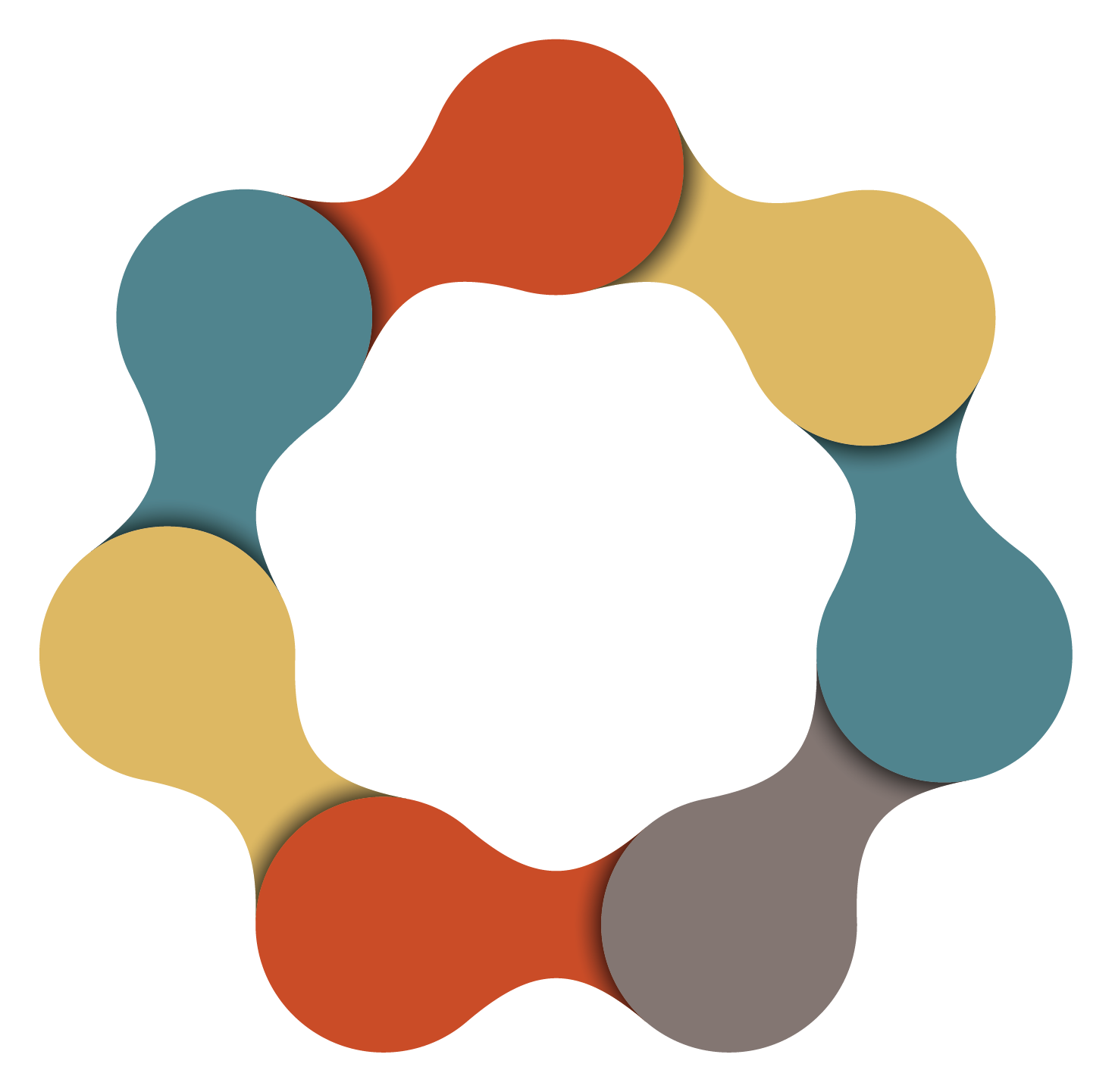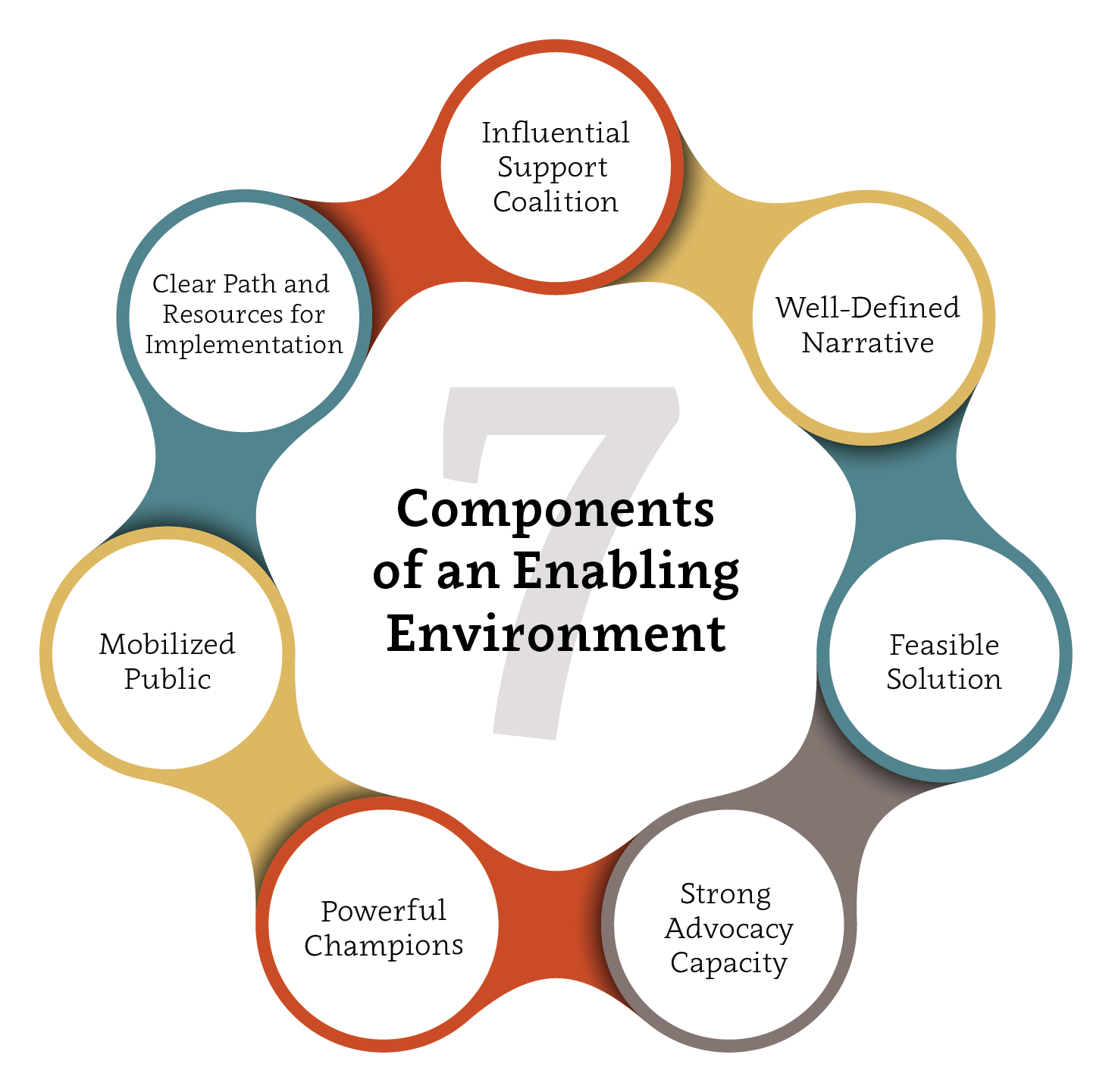

Clear consensus exists that there is a problem in need of a government solution and a strong case for action.
A solution has been developed based on research that shows it will produce the intended benefits.
A collective of advocates working at multiple levels have the capacity needed to capture windows of opportunity.
Influential leaders and decision-makers support the solution and its underlying principles and can overcome the opposition.
Relevant public audiences actively support the solution and its underlying social principles.
The implementing institution has the commitment and the ability to execute the solution.
Allies have the political power and constituent support to sway needed decision-makers to pursue the solution.
The presence and strength of each of these seven elements within a particular environment make it more likely that a campaign will lead to policy passage, successful implementation, and sustained change.
We have developed supporting tools, such as research questions and trackable indicators for each element, that operationalize this framework. In planning advocacy investments to further any issue, this framework and the associated tools can help funders understand where gaps exist and better plan their investments; they can also be used to monitor progress or to retrospectively assess the effectiveness of a campaign.
This framework draws heavily on the Redstone Strategy Group’s 2013 article “Assessing Advocacy” (which itself draws on models from the Urban Institute, the Hewlett Foundation, Capitol Impact, and more). We tested and amended the framework through extensive research and interviews with advocates, policymakers, funders, and other experts. The team that developed this framework includes Shelley Whelpton, Loren McArthur, Julie Slay, Ryan Strode, Hilary Cherner, Abby Newcomer, and Kheira Issaoui-Mansouri.
For more information on how to use the framework, please contact advocacy@arabellaadvisors.com.